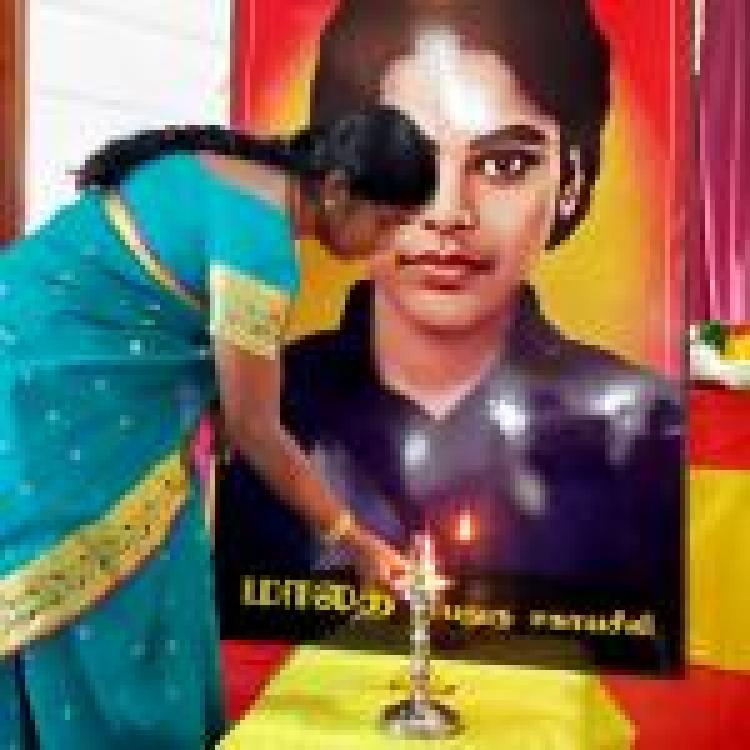.jpeg)
Hundreds of women from all eight districts across the Tamil homeland 8 districts took to the streets in Kilinochchi today, demanding an end all forms of oppression, harassment, and militarisation across the North-East, including eliminating violence against women.
The rally was organized by the North-East Women’s Collective under the theme of “Let Us Eliminate Intersectional Oppressions against Women”.
The women marched up to the Kilinochchi Green Park campus and issued a statement, highlighting various issues, including the intersectional oppression faced by Tamil-speaking women in the homeland.
“We the Tamil-speaking women, whose traditional habitat is the North-East region of Sri Lanka have been subjected to distinct intersectional oppressions,” they said. This includes:
Being subjected to systematic ethnic and linguistic oppression by the Sri Lankan state for more than seven decades
Bearing the ravages and pains of genocidal war
Threats of being arrested under the Prevention of Terrorism Act
Living in constant fear of arrests and being taken away from their families
Unable to speak up to seek fair reparations, to conduct or commemorate the dead
To have their political rights respected
Some of the women still living as refugees due to displacement and land grab
Enrochment by the military onto their agricultural lands
Being under a constant state of surveillance
Being visited by investigators claiming to be from the intelligentsia or military in the night
Women who engage in advocating for human rights are being summoned to police
Police seeking court orders against the women to thwart their activities
Assault and harassment from security forces
“We Tamil women suffer not only because of the government's racist oppression but also from the age-old patriarchal oppression and denial of rights in the North-East Tamil society,” they said, adding that there has been an increase in domestic abuse, sexual assault, cybercrimes, and sexual harassment of girls in schools and in workplaces, which are not made public due to fear.
Through their protest, they demanded an end to all forms of intimidation, harassment, and oppression against Tamils in the homeland and to ensure the enforcement of law and order equally.
.jpeg)
.jpeg)
.jpeg)

